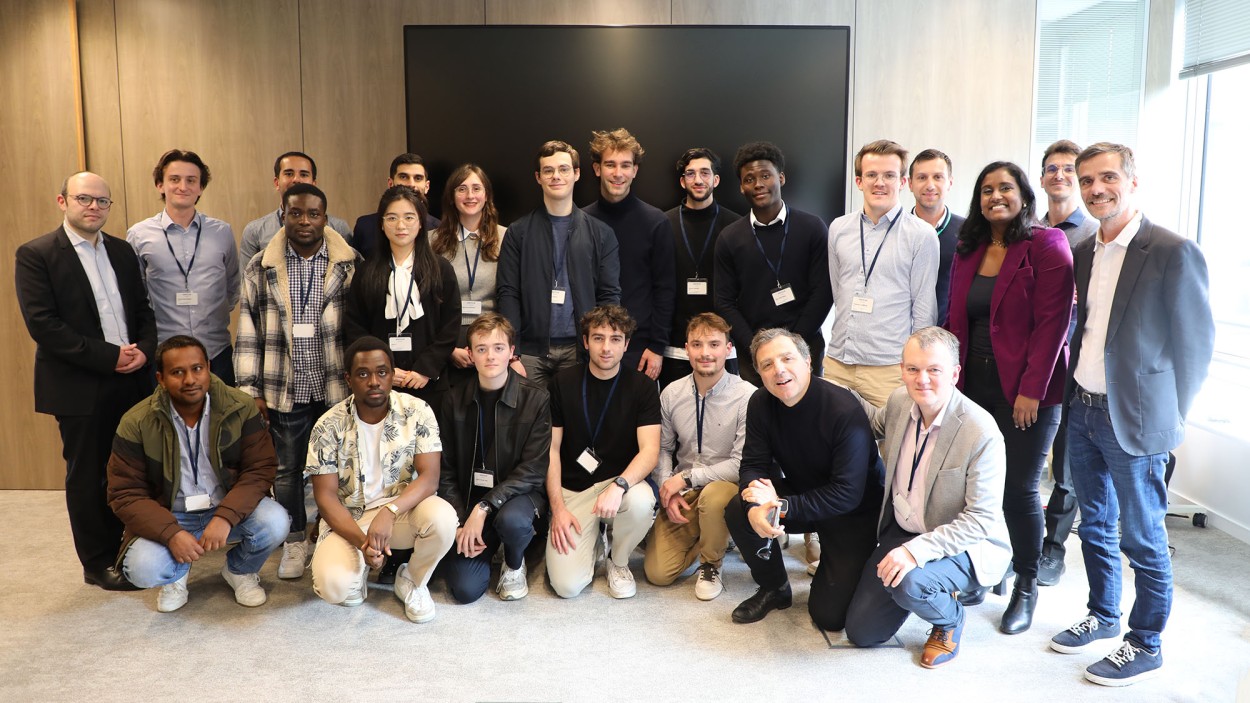GenHack: A hackathon on generative models
 The 3rd GenHack challenge focused on a problem linked to maize growing. / Photo: Bits and Splits - stock.adobe.com
The 3rd GenHack challenge focused on a problem linked to maize growing. / Photo: Bits and Splits - stock.adobe.com
The GenHack Challenge is a recurring student hackathon organised by the ‘Stress-test, Risk Management and Financial Steering’ Chair of École Polytechnique with the support of BNP Paribas and the Fondation de l'X. This event challenges participants to apply generative models to issues related to climate change.
For its 2nd edition in 2022, participants worked on data provided by Mercator Ocean International to model changes in ocean temperature. For its 3rd edition in 2024, the theme was the impact of climatic conditions on maize growing. The event, which took place online over a period of several weeks, attracted more than 300 participants. The testimonies from the members of the teams rewarded at the end of the competition on 7 March 2024 included a range of interests, showing that GenHack3 had found the ideal recipe: a topical, high-stakes subject, a stimulating technical challenge and an innovative competition format.
“I specifically searched for AI challenges about climate change. This is really important to me.” says Mariana, a PhD student in economics at Royal Holloway, University of London, and GenHack3 participant.
“I took part because I was interested in the subject. During the challenge, I realised that the technical tools we used can also be applied to other sectors.” explains Matthieu, a student at the École Polytechnique and GenHack3 participant.
‘My goal in this competition was more about the finance application; I could use my knowledge on a specific problem.” adds Jing, student at École polytechnique and GenHack3 participant.
While some participants were attracted by the topic, for others it was the hackathon format that was particularly appreciated, and in particular the length of the GenHack challenge, which sets it apart from most of its contemporaries.
“What I liked about this challenge was that it took place over several weeks. We work every evening for a fortnight, at our own pace, rather than very intensely over 48 hours as can be the case elsewhere.” tells Tim, a student at the École Polytechnique and GenHack3 participant.
“I took part in this challenge to improve my skills and explore the applications of artificial intelligence. It's interesting because you have to dig around, read scientific publications... The subject of GenHack3 was new to me, but I've already taken part in other artificial intelligence challenges in the past via the École polytechnique's X-IA student association.” adds Ivan, a student at École polytechnique, and GenHack3 participant.
“It was an opportunity to discover generative AI, which we hear a lot about. I found it interesting to learn more by getting out of the lecture format and working on a project.” says François, a student at the École polytechnique, and GenHack3 participant.
Although competition was not the main objective, it was the technical challenge that enabled the winning teams to outdo each other and come up with innovative solutions.
‘The challenge aspect is stimulating!’ says François.
“At first, with my team, we did not think about winning. But in the end, we are happy to have a good position in the competition!” conclude Jing.

GenHack will be back soon. In the meantime, the “Stress-test, Risk management and Financial Steering” Chair has resumed its activities with a series of seminars on climate risks, that took place on 14 October 2024.Peter Tankov, Professor of Quantitative Finance at ENSAE and co-director of the IP Paris “Decarbonising the Economy” sponsorship programme, has opened the event with a presentation entitled “Asset pricing under transition scenario uncertainty and model ambiguity”.
 Support l'X
Support l'X 








